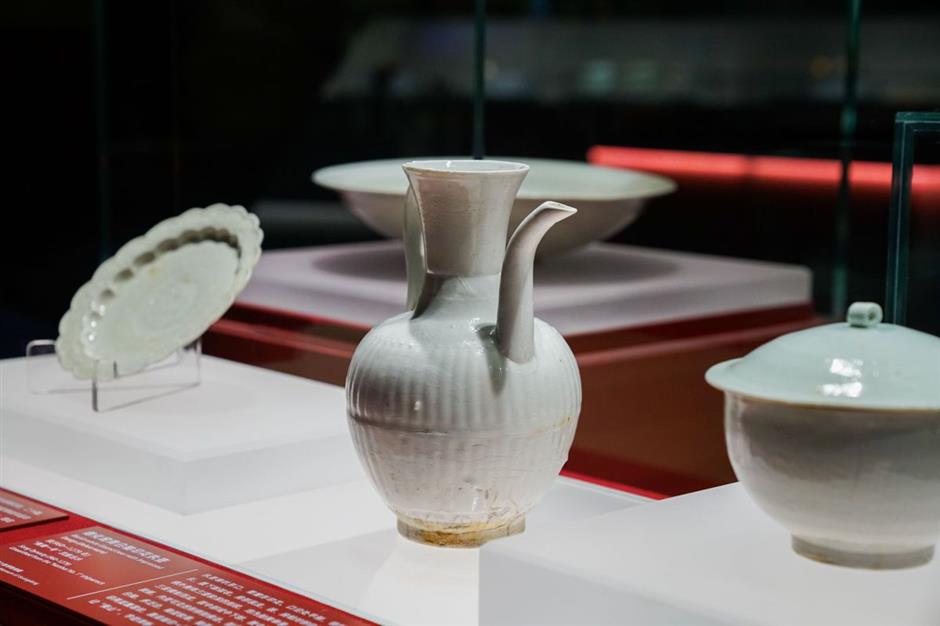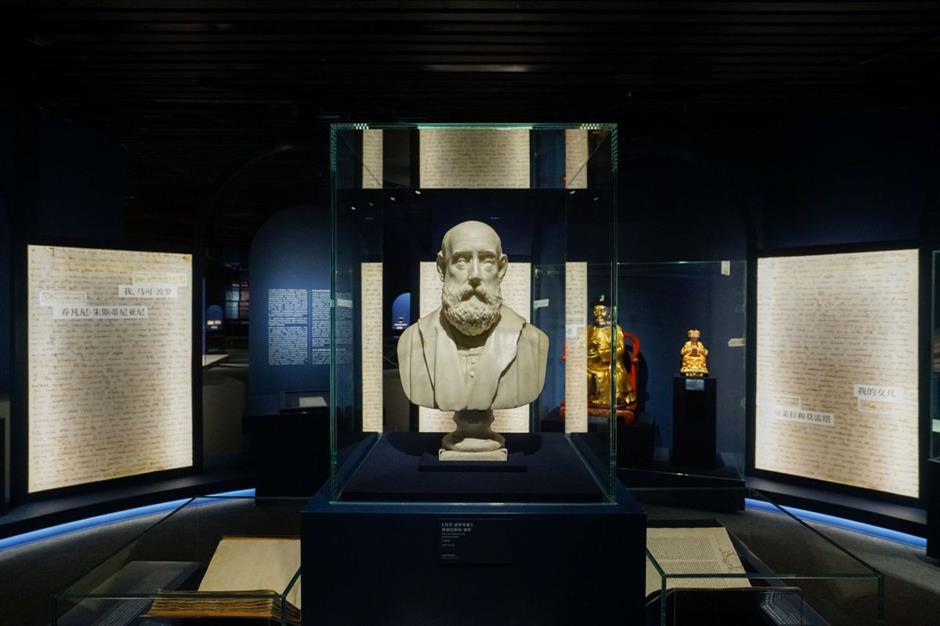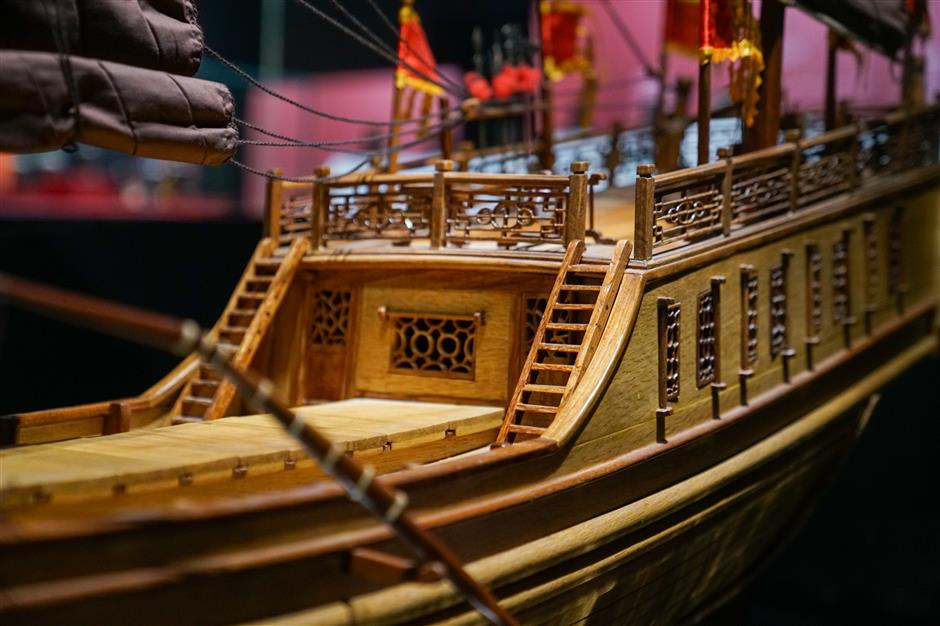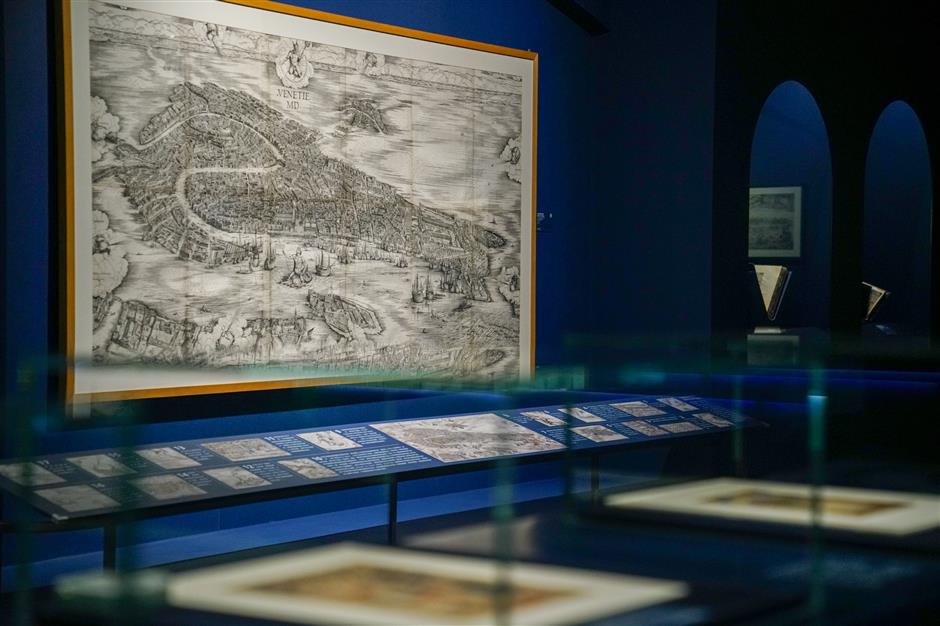Exhibition at Shanghai Museum Looks at World through Eyes of Marco Polo

Bluish-white Galzed Ewer with Impressed Design of Song Dynasty

This portrait of Marco Polo in marble was carved by Francesco Bosa.
To commemorate the 700th anniversary of the death of the famous Venetian traveler Marco Polo, a special exhibition Wonders of the World: China and Beyond in the Eyes of Marco Polo is showing at the Shanghai Museum.
Initiated by the Shanghai Museum and the Italian Cultural Institute in Shanghai, the exhibition focuses on the dialogue between Eastern and Western civilizations through precious archival materials, archaeological discoveries and collections from museums in Venice, Rome, and Florence, in Italy, and China.
The exhibition selects 204 pieces or sets of exhibits from 28 Italian and Chinese cultural and museum institutions, aiming to reflect the era in Marco Polo's time. Visitors can witness the vibrant maritime trade of Venice, the robust networks of commerce under the aegis of Mongol Khanates, and the ancient cities of Hangzhou and Quanzhou.
The items on display vary from instruments, prints, silk fabrics, glassware, coins, and porcelain to paintings and calligraphy. Among the Chinese exhibits, many artifacts show exchanges between the East and the West in the 13th and 15th centuries, such as navigational tools, statues of caravans, trade commodities, religious stone carvings, and maps from the Song and Yuan dynasties.

The exhibition is divided into five sections: City of Commerce, Bilateral Exchange, Capital of Splendor, The Bustling World, and The Traveler.

Perspective Plan of the City of Venice, 1500 by Jacopo de' Barbari
The exhibition is divided into five sections: City of Commerce, Bilateral Exchange, Capital of Splendor, The Bustling World, and The Traveler.
The first section, City of Commerce, focuses on the political and economic systems, maritime trade, manufacturing, social life, and culture of Venice, a thriving Mediterranean commercial and transportation powerhouse at that time.
In the last section, The Traveler, visitors can find that Marco Polo was not a lonely traveler. During his time, there were many merchants and missions, believers and artists who travelled between the east and the west, and many of them left behind their records on politics, culture, and social and economic life.
It is interesting to see a portrait of Marco Polo in marble made by Francesco Bosa and a wooden statue of Marco Polo by an unknown Chinese craftsman in the 19th century.
If you go
Dates: 9am-5pm, until March 30, 2025 (Closed on Mondays)
Address: 201 People's Avenue
Admission: Bookings can be made through the WeChat official account:上海博物馆
Source: SHINE Editor: Fu Rong